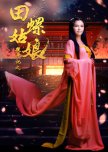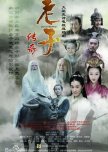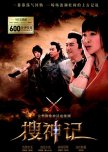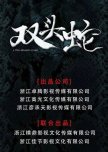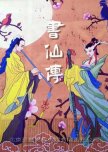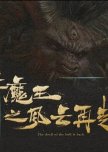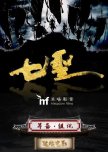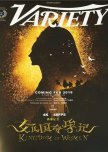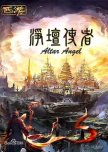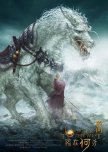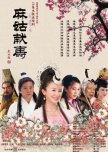In Search of the Supernatural
A certain air of mystery is common in early literary works on spirits and creatures—or so it would seem. While the original from the East Jin dynasty is long lost, the existing In Search of the Supernatural (搜神记; Sōushén Jì) is a compilation of later texts documenting the same stories. What did survive are the records of author Gàn Bǎo (干寶), who, according to the historical Book of Jin, was inspired to write when he first found his father’s concubine alive after over a decade in the ground, then his brother revived despite having stopped breathing days ago.
The resulting In Search of the Supernatural became a pioneer of the Chinese supernatural genre. Folklore and local legends of spirits and creatures, of miracles and gods, and those who practised the occult filled its pages. In-between were strange events in history. Its narrative, short-story structure, in place of the Classic’s brief descriptions, marked it to be emulated—per the acclaimed Strange Stories from a Chinese Studio.
Some of the most intriguing stories of In Search are of the Luò Tóu Mín (落头民) and the Chinese merfolk. It is said that in the Qin dynasty, there lived the Luo Tou Min, whose heads flew and who were worshipped. A general’s maid at the time happened to be of the tribe. Every night, her head left her body in sleep, its ears her wings in flight, and would not return until the predawn hour. Only on the occasion that her neck was covered was it discovered that the head would plunge, verging on death, unless the two were reunited.
At the other end of the land, beyond the South Seas, resided merfolk who went by the name Jiāo Rén (鲛人). The deeps were their home, water their air, and their ways were little different from those of the fish. By day, they weaved as humans did, but when they wept, each fallen tear is a pearl.
-
1. The Legend of Sword
Chinese Movie - 2020
(2020) Movie - Youtube - RAW [Time: 1h 24min]
Gan Jiang Moxie 干将莫邪
-
2. Spirit of Two Swords
Chinese Movie - 2020
(2020) Movie
-
3. The Glory of the Hero
Chinese Movie - 2020
(2020) Movie
-
4. The Legend of the Nanhai Mermaid
Chinese Movie - 2020
(2020) Movie
-
5. Swordsman
Chinese Movie - 2019
(2019) Movie
-
6. Sou Shen Ji Zhi Tian Luo Gu Niang
Chinese Movie - 2017
(2017) Movie - Dandanzan - RAW [Time: 1h 10min]
-
7. Sou Shen Ji
Chinese Special - 2014, 1 episode
(2014) Movie - Youtube - RAW [Time: 32min]
-
8. The Legend of Laozi
Chinese Drama - 2016, 33 episodes
(2016) Drama
-
9. Story of Immortal
Chinese Drama - 2012, 36 episodes
(2012) Drama
-
10. Legend of the Demigods
Hong Kong Drama - 2008, 22 episodes
(2008) Drama







